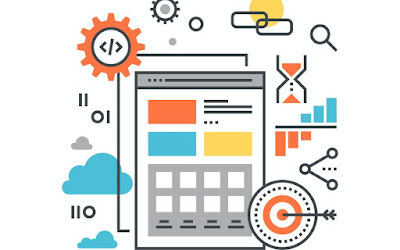I n troduction In today’s data-saturated world, successful businesses aren’t just collecting data but making sense of it. Whether you’re a startup looking to optimize operations or an established enterprise aiming to uncover new revenue streams, business analytics is the key to unlocking smart, strategic decisions. But getting started can feel overwhelming without the proper foundation. That foundation starts with the tools . From organizing raw data to visualizing insights and making data-backed decisions, the right business analytics tools can help transform your business from reactive to predictive, even prescriptive. In this article, we’ll explore five essential tools that every business needs to build a solid analytics strategy and how they fit into a broader data engineering solution designed by data engineers. Top 5 Tools for Business Analytics Power BI / Tableau: Visualize to Realize The first thing that likely comes to mind w...
Introduction
Many large enterprises are using robotic process automation (RPA) to reduce costs and improve efficiency. By implementing RPA, businesses can automate repetitive and mundane tasks. RPA could represent the first step towards true intelligent automation. But what is RPA, and what are its applications in business?
What Is Robotic Process Automation?
RPA is a term that can be applied to any computer program that automatically performs a repetitive function. In its simplest form, RPA is the automatic out-of-office message that your email software sends. More sophisticated RPA bots can log into an application, perform tasks, and log out again. RPA is not a part of an organization’s IT infrastructure. RPA sits on top of the infrastructure and automates tasks that humans would otherwise perform.
There are three main types of RPA bots. There are programmable bots that interact with other systems. There are intelligent RPA bots that can make decisions based on unstructured data. And, there are self-learning bots, such as chatbots.
Robotic Process Automation is a software technology that automates the execution of tasks, typically those that are repetitive and mundane.
Robotic Process Automation (RPA) is an emerging trend in business process automation. It is a type of computer programming that uses software to control the execution of routine tasks. RPA automates these routine tasks by mimicking human actions, such as clicking or filling out forms on a screen.
Examples of RPA Applications
RPA is suitable for use on tasks that are repetitive, well-documented, and well-defined. If the task is rule-based, and it does not alter often, then it is a task that could be completed by RPA. Robotic process automation can automate a wide variety of tasks in many different industries. Here are a few of the practical applications of RPA.
Web site scraping
RPA can be used to gather information from web pages. Examples of this include extracting and summarizing data from stock trading websites. Once the data has been collected and summarized, it can then be passed to humans for further analysis.
Automated email processing
Many organizations receive lots of emails asking the same questions. RPA can take care of some of these emails and respond with standard replies. The emails that the RPA bot cannot answer can then be forwarded to the appropriate personnel for answering.
Data Cleansing
Data cleansing is a good example of where RPA can be used to complete time-consuming tasks. If there are clear rules as to what constitutes bad data, RPA can filter out that bad data much more efficiently than humans.
Data Entry
One of the most far-reaching applications of RPA is that of data entry. An RPA bot can read original forms using optical character recognition (OCR) and then “key” the data into an application. This would be faster than a human could key the data, and it would be more accurate.
The Benefits of Robotic Process Automation
The benefits of RPA to businesses are many. RPA removes the human error factor from many tasks. The effectiveness of RPA can be limited by the accuracy of technologies, though. Technologies such as optical character recognition and speech recognition software. Even so, RPA bots can work 24/7 without breaks, and they never get bored. Bots also only need training once, and they will never quit their job.
RPA technology brings more than only cost savings. It also improves the customer experience through faster processing of data and faster resolution of queries. For employees, it brings that removal of the boring, repetitive tasks, so that they can spend more time on the important aspects of a role. RPA will change the nature of some jobs, so the HR aspects of those changes must be planned for as well. Overall, though, RPA will change the nature of employment for the better, rather than put people out of work.
Why Businesses Need to Consider Robotic Process Automation
RPA is a technology of today, not of the future. RPA bots are being used in accounting, finance, HR, and marketing now. American Express Global Business Travel uses RPA to automate the canceling of airline tickets and the issuing of refunds. At Walmart, RPA bots answer employees’ questions. In the future, some elements of almost every business process could be automated by RPA.
Robotic Process Automation won’t replace the need for humans. But it will remove the need for humans to perform programmable repetitive tasks. Businesses that do not embrace RPA will find themselves falling behind their competition. They will find that their customer service functions are slower and less efficient. And, they will become less competitive because of the additional costs of employing humans to perform tasks that are better performed by boots, and by not innovating by freeing up humans to do things that bots cannot. Eventually, businesses that do not use RPA will also find it difficult to employ people to perform repetitive tasks. Like their customers, their employees will have all moved to the companies that are using Robotic Process Automation to make life better for customers and employees.

Comments